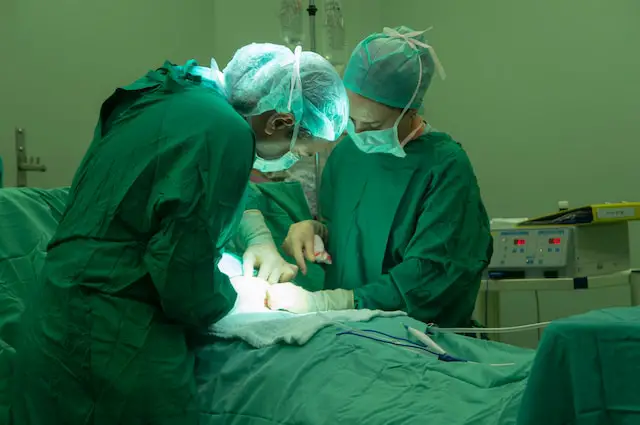Surgical glue, also known as tissue adhesive, is a common method for closing incisions after laparoscopic surgery. This type of glue is typically made from cyanoacrylate, a type of fast-drying adhesive that is used in a variety of medical applications.

The use of surgical glue can provide several benefits for patients who undergo laparoscopic surgery, including reduced healing time, less scarring, and decreased risk of infection. However, it is important to understand that the length of time that surgical glue will last after laparoscopy can vary depending on several factors.
One of the main factors that can impact the longevity of surgical glue is the size and location of the incision. In general, larger incisions or those located in areas that experience a lot of movement or stretching may not hold up as well as smaller or more stable incisions. This is because the adhesive may not be able to withstand the forces placed on the incision site during normal movement and healing.
Another factor that can impact the longevity of surgical glue is the quality of the adhesive itself. While cyanoacrylate is a strong and reliable adhesive, there are different types and formulations that may perform differently depending on the application. Some surgical glues may have a shorter lifespan than others, depending on their chemical makeup and other properties.
The type of tissue being repaired can also impact the lifespan of surgical glue. For example, tissue that is dense or fibrous may be more challenging to bond with surgical glue, which can reduce its lifespan. Additionally, tissues that are exposed to moisture or other substances may be more prone to breaking down over time, which can impact the effectiveness of the adhesive.
Finally, individual factors such as a patient’s age, health, and lifestyle can also impact the longevity of surgical glue after laparoscopy. Patients who are older or have underlying health conditions may have a more difficult time healing, which can impact the durability of the adhesive. Additionally, patients who engage in activities that place additional stress on the incision site, such as heavy lifting or intense physical activity, may experience a shorter lifespan for the surgical glue.
In general, surgical glue used after laparoscopy is designed to provide short-term closure and support for the incision site. Depending on the size and location of the incision, the quality of the adhesive, and individual factors, the lifespan of surgical glue can vary widely. However, it is typically expected that surgical glue will last for a few days to a few weeks after laparoscopic surgery.
During the healing process, the body will gradually break down the surgical glue and replace it with new tissue. This process can take several weeks or months, depending on the extent of the surgery and the individual patient’s healing time. In some cases, patients may experience some mild discomfort or irritation as the adhesive breaks down, but this is typically temporary and resolves on its own.
While surgical glue can be an effective method for closing incisions after laparoscopy, it is important to follow your doctor’s instructions for caring for the incision site and monitoring for signs of infection or other complications. This may include keeping the area clean and dry, avoiding strenuous activity, and watching for any signs of redness, swelling, or drainage from the incision site.
In summary, surgical glue can be a useful tool for closing incisions after laparoscopic surgery, but its longevity will depend on several factors such as the size and location of the incision, the quality of the adhesive, and individual patient factors. While surgical glue is typically expected to last for a few days to a few weeks, it is important to monitor the incision site carefully and follow your doctor’s instructions for proper care and healing.